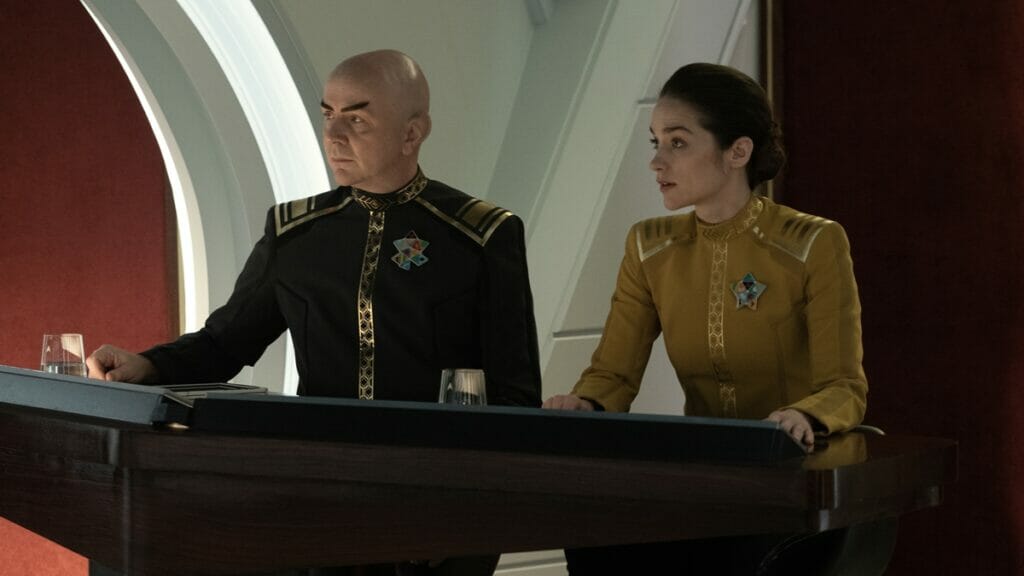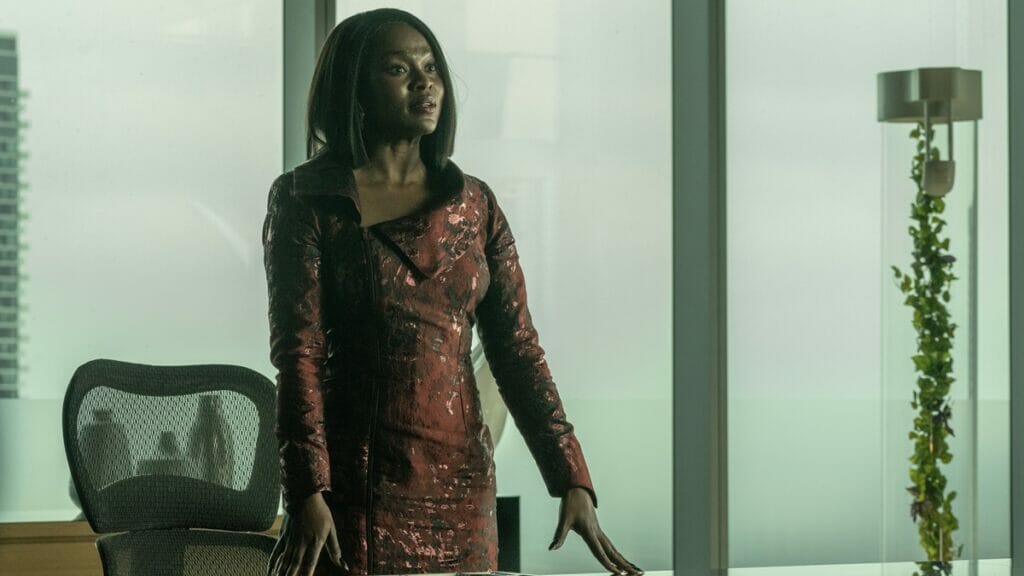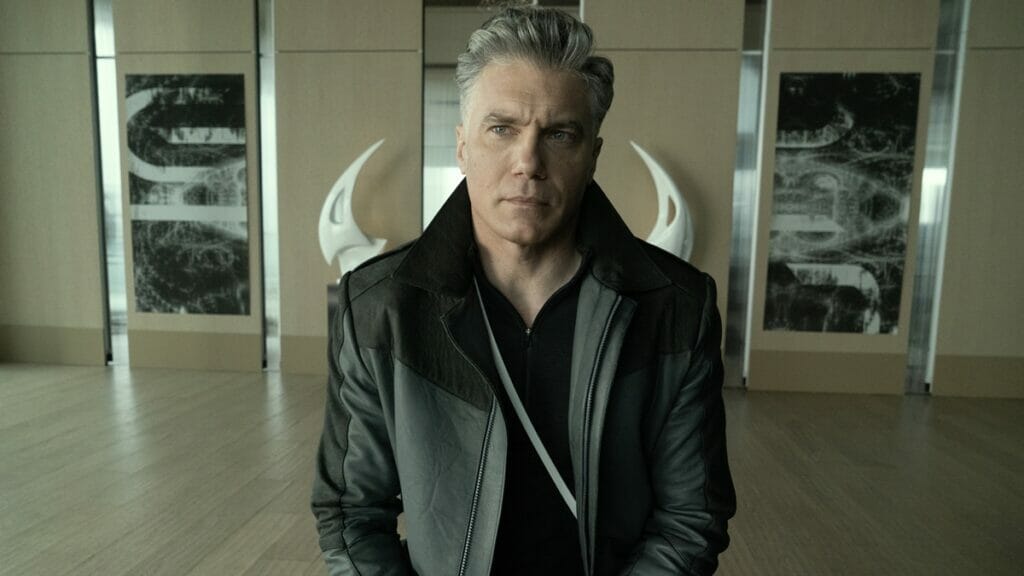Read also:
How to Watch FX Live Without CableHow To Watch AMC Without CableHow to Watch ABC Without CableHow to Watch Paramount Network Without CableOne of the franchise’s trademark courtroom drama episodes is a crucible for Number One and for Starfleet’s principles in action.
Ruth Bader Ginsburg once wrote that the culture of America’s Founding Fathers “held them back from fully perceiving or acting upon ideals of human equality and dignity.” But, she added, they nonetheless used the country’s founding documents to bind themselves to vital notions of equality and individual liberty. And, as she put it, “Those commitments had growth potential.”
To the same end, not every aspect of Star Trek has aged well. The 1960s series was boldly progressive for its time but has multiple episodes where Kirk and company barge into some alien society and deign to tell the locals how they ought to live. The shows of the 1990s made great strides but fumbled with some topics and missed others entirely. Hell, you only have to go as far back as 2017, when Star Trek: Discovery invoked Elon Musk as a luminary on par with the Wright Brothers and Zefram Cochrane, to see how certain elements from these series crumple in the fullness of time.
 Paramount+)" class="wp-image-42734"/>
Paramount+)" class="wp-image-42734"/>But what keeps people coming back to the franchise throughout the years, despite changes in creative teams and canon and aesthetics, are the ideals that Star Trek was born with: diversity, curiosity, empathy, and a commitment to seeking common ground and a shared understanding.
Those ideals are at the foundation of “Ad Astra per Aspera.” Strange New Worlds’ second episode of the season is a courtroom drama, a conceit the franchise loves to use when underscoring its most important principles. Number One (Rebecca Romijn) must stand before a tribunal and answer for the crime of hiding her Illyrian heritage on her Starfleet application. At stake is her commission, her freedom, and most of all, the dignity of herself and those like her.
The result is one of Strange New Worlds’ headiest and all-around best episodes to date. It works on the level of pure T.V. conflict. On the one side is top civil rights lawyer and fellow Illyrian, Neera (Yetide Badaki), who’s advocating not only for Una’s freedom but for the rights of all augmented individuals. On the other is Captain Batel (Melanie Scrofano), a Starfleet JAG officer who’s duty-bound to prosecute the Federation’s strict rules against genetic augmentation.
The result is one of Strange New Worlds’ headiest and all-around best episodes to date.
In the middle is Una herself, fighting to uphold her identity and casting aside any easy ways out that would preserve her freedom while forcing her to stay hidden. And lurking in the background is the fact that a supportive-but-worried Captain Pike (Anson Mount) knew her secret and kept it under wraps, hindering his ability to intervene on behalf of his friend and partner.
The episode also works on a personal and character-focused level. Una and Neera are one-time friends who grew estranged when Una’s ability to pass as a non-Illyrian on their home world led her to leave the less fortunate Neera behind, a sin that complicates their defense. Pike and Botel have a romantic relationship, one strained when Botel’s job requires her to balance duty and compassion when prosecuting Pike’s first officer. And the crew of the Enterprise writ large serve as Una’s character witnesses (including an invocation of the amusing Short Trek starring Spock and Una) as they all wait with bated breath to learn the fate of their valued colleague and friend.
 Paramount+)" class="wp-image-42736"/>
Paramount+)" class="wp-image-42736"/>But as in so many of the best Star Trek installments, “Ad Astra per Aspera” also works on a broader thematic level. As presaged by Rebecca Romijn’s turns in the X-Men franchise, the Illyrians function as stand-ins for multiple marginalized groups when the show explores her people’s treatment.
The passing privilege at the heart of the bad blood between Una and Neera and the de facto apartheid in the communities at issue speaks to questions of race. Neera’s constant rejoinder that no one should have to hide who they are rings especially true in the midst of Pride Month. Starfleet values the job Una did until it found out where she’s from, and her salvation resting on a plea for asylum reflects the immigrant experience. And concerns about having to practice your culture in secret and avoiding presenting yourself openly lest you face de jure or de facto discrimination run through all of these concerns, not to mention bigotry founded on religion, place of origin, and other facets of a person’s being. The strength of the metaphor at the heart of “Ad Astra per Aspera” is that it’s malleable enough to speak to all of these concerns.
 Paramount+)" class="wp-image-42735"/>
Paramount+)" class="wp-image-42735"/>That said, as with “Ghosts of Illyria” from last season, I have my qualms about SNW using Star Trek’s longstanding allegory for Nazis and eugenicists as the source of a “Maybe we’re the ones who’ve been prejudiced all along” story. Outside of a few brief lines of dialogue, this episode never fully engages with the moral complications behind the Federation’s understandable reluctance to embrace cultures founded on engineering a society of Übermensches.
Yet, regardless of the tangles of the analogy, there is always merit in the notion of treating all peoples, Number One included, as individuals, rather than sweeping them up into a singular maligned monolith. And at a time when gender-affirming healthcare is being outlawed across the nation, and those who provide and receive it are unjustly demonized, there’s also merit in taking a more nuanced look at “modification” through scientific advancements without devolving into reflexive vilification.
More to the point, Neera’s criticisms of the Federation in the face of the Illyrians’ treatment ring true. Starfleet captains both before and after Admiral April do bend the rules when it suits them and, in turn, hide behind protocol when it’s convenient. As in real life, the question of which violations earn deference and even praise and which ones are punished is shaped by whether our society values the people affected or, instead, disdains them.
[A]s much now as in 1966, they still have growth potential.
Even the high-minded Federation is a party to a system that excludes civilizations like the Illyrians, and people like Una, based on factors beyond their control. There are flaws and hypocrisies at the root of the fictional institution so many Trekkies idolize, one evident in the stories told under its aegis. It’s as commendable as it is uncomfortable to hear Neera tear at those roots.
But those critiques are also a means to build that institution back up, fully realize the opportunities the Federation has and that we have, to make good on the promises inherent in the notions of liberty and equality so many of us espouse. Una’s advocate uses her as a test case, not merely for the application of Starfleet’s bylaws, but for whether the powers that be are willing to more broadly recognize how people like her represent the best of what the Federation aspires to be rather than a mistake to be swept under the rug, let alone punished for merely existing.
To accomplish that, Neera deploys a deft legal maneuver. She spins what is, ostensibly, a personal, emotional story about discrimination, hardship, and perseverance into the fact-based elements of an asylum claim. Neera prompts Una to admit she turned herself in, vindicating both the requirements of the case law and also the broader point about her wanting to be accepted for who she is. Neera gives the tribunal the chance to creatively apply the rules in this case, as so many Federation luminaries have in the past, but to do so in service of founding principles like tolerance and compassion that drew someone like Una to Starfleet in the first place, inspiring her to become one of its most exemplary officers.
 Paramount+)" class="wp-image-42732"/>
Paramount+)" class="wp-image-42732"/>Of course, in the end, the tribunal sees the light and agrees. Yet, true to form for Star Trek’s legal eagle outings, this is only a measured victory. Much as in TNG’s “Measure of a Man,” the court’s decision is meant to settle the question at hand for a single individual, not the wide swath of similarly situated folks whose lives are implicated by Una’s situation. (Sorry, Dr. Bashir.) But as Neera herself suggests, it may nevertheless be the first step down a path of greater acceptance and recognition for those still held at the margins of Starfleet and away from its assurances of freedom and acceptance for all.
The Federation is far from perfect. Like the nation it’s inspired by, and the storytelling universe it spawned, the flawed human beings carrying the torch for each often fail to live up to the stirring ideals both are founded upon. But as Neera herself puts it, in the tribunal’s decision to honor its principles rather than diminish them, in a diverse crew’s urge to lift up their fellow crewmate even when it’s not easy, in a television show’s commitment to broadening the franchise and using its platform to call out the wrongs of our age, there rests “a good start.”
The ideals at the heart of Star Trek may not always bear out in every story. Our understanding and commitment to them evolves over time and can make what was once groundbreaking seem quaint. But by the stars, as much now as in 1966, they still have growth potential.